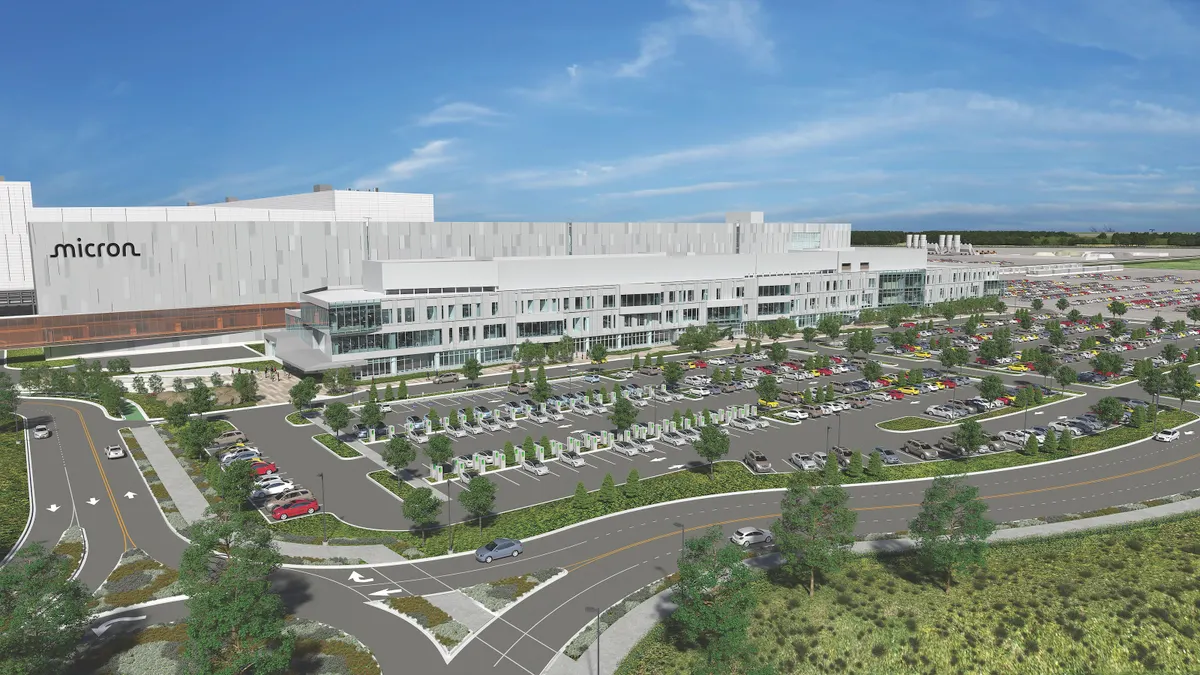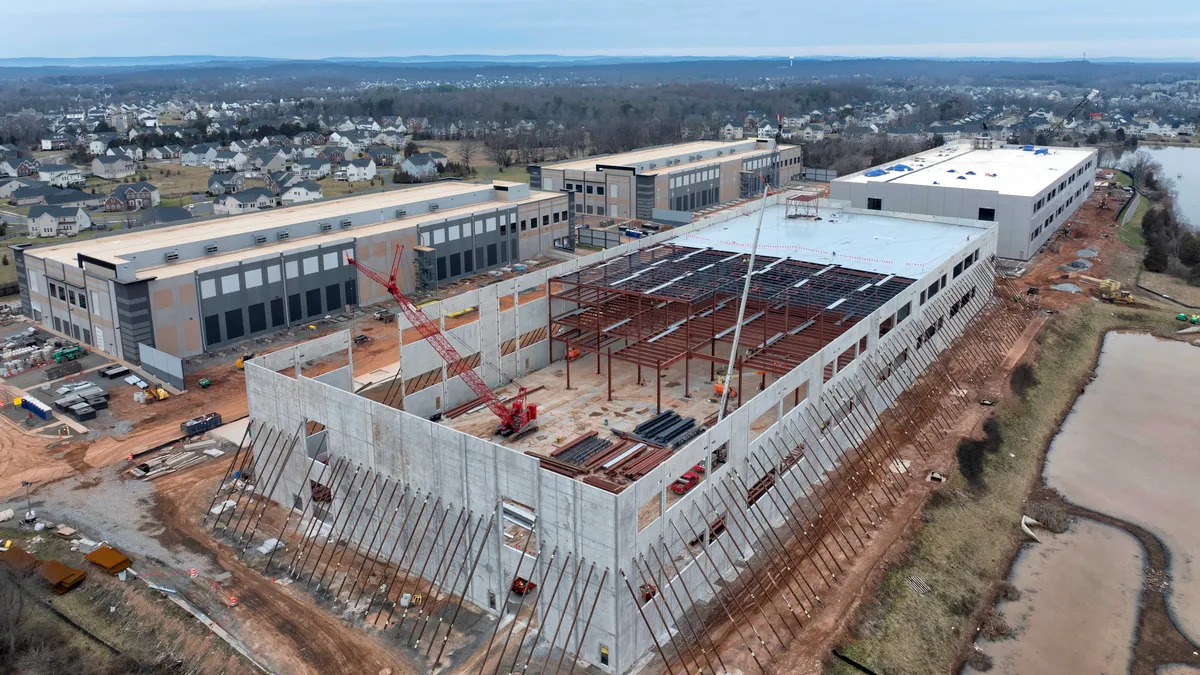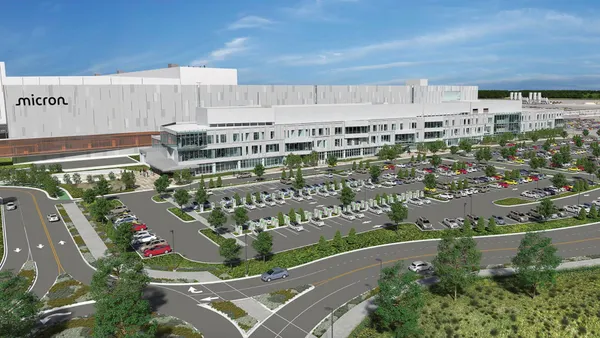Dive Brief:
-
Facebook announced Tuesday that will build a $750 million, 900,000-square-foot data center in New Albany, OH, near Columbus, according to the Cincinnati Business Courier.
-
State financial incentives will give Facebook an estimated $37 million in tax breaks. By 2024, the data center is expected to generate up to $1.4 million in annual economic benefits for New Albany, an amount that adds up to 8% of the city's current general fund budget.
-
The data center is slated for completion in 2019 and it will be the largest such facility in an area that hosts similar operations for companies like Amazon and Cologix.
Dive Insight:
Facebook is rapidly growing its data center network. In July, an Associated Press report revealed the social media giant's plans to expand the size of a data center already under construction near Albuquerque, N.M., to the equivalent of 17 football fields. Like the state of Ohio, New Mexico and the city of Los Lunas, where Facebook is building the new data center, is offering substantial tax breaks and other financial incentives to build there.
Tech companies and manufacturers of all kinds can almost be assured these days that state and local governments will do everything they can to make the move to their respective locations attractive.
For example, a $1.3 billion aluminum plant planned for Ashland, KY, could mean $25 million for manufacturer Braidy Industries over the next 15 years. That's if the company lives up to its promises of local investment and job creation.
The enticements continue to flow even amid occasional allegations that the payoff for some companies is so big that it reduces the benefit of the jobs and other economic growth local communities are supposed to get out of such deals.
The federal government and the state of Wisconsin courted Taiwanese electronics manufacturer Foxconn into a $10 billion manufacturing deal that is expected to bring a significant flat-panel display operation to the state. In return, Wisconsin is giving Foxconn up to $3 billion in tax credits over the next 15 years. That also means state taxpayers could pay $230,700 for each of the jobs the electronics giant says it will create.













